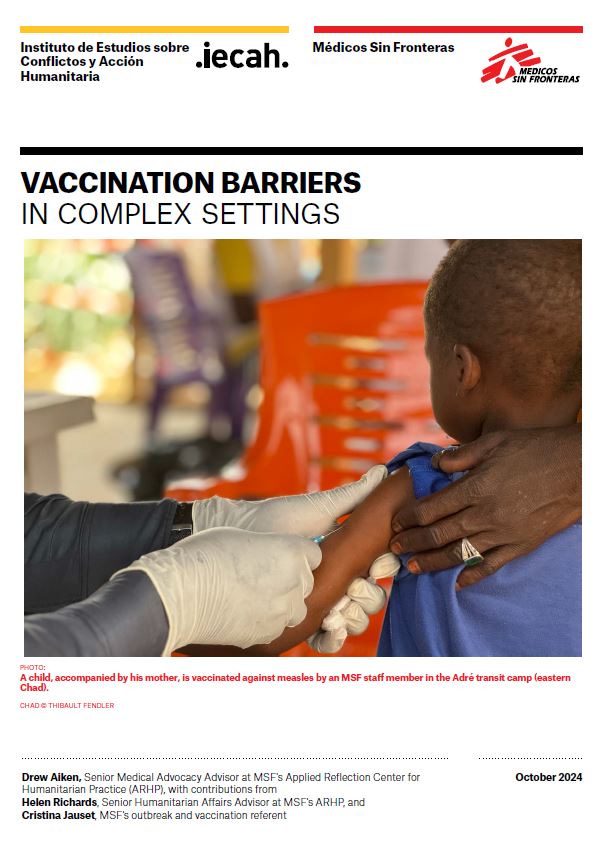Vaccination barriers in complex settings
In some of the most acute conflict settings, coverage rates have dropped sharply as a result of hostilities and the breakdown of health systems.
October 2024
Drew Aiken, Senior Medical Advocacy Advisor at MSF's Applied Reflection Center for Humanitarian Practice (ARHP), with contributions from Helen Richards, Senior Humanitarian Affairs Advisor at MSF's ARHP, and Cristina Jauset, MSF's outbreak and vaccination referent
Vaccination remains one of the most effective interventions to prevent illness and death. Yet, for people living in conflict and humanitarian settings, access to routine vaccination, vaccination catch up, or needed interventions when outbreak occurs is far from guaranteed. The consequences include repeated outbreaks and their consequences including illness from measles, diphtheria, meningitis, among other vaccine preventable illness, and the significant number of persons (mainly children) who become ill or die. This situation is far from inevitable; rather there are concrete actions that can be taken to better prevent further illness and death.


 Vaccination Challenges in Conflict Settings
Vaccination Challenges in Conflict Settings